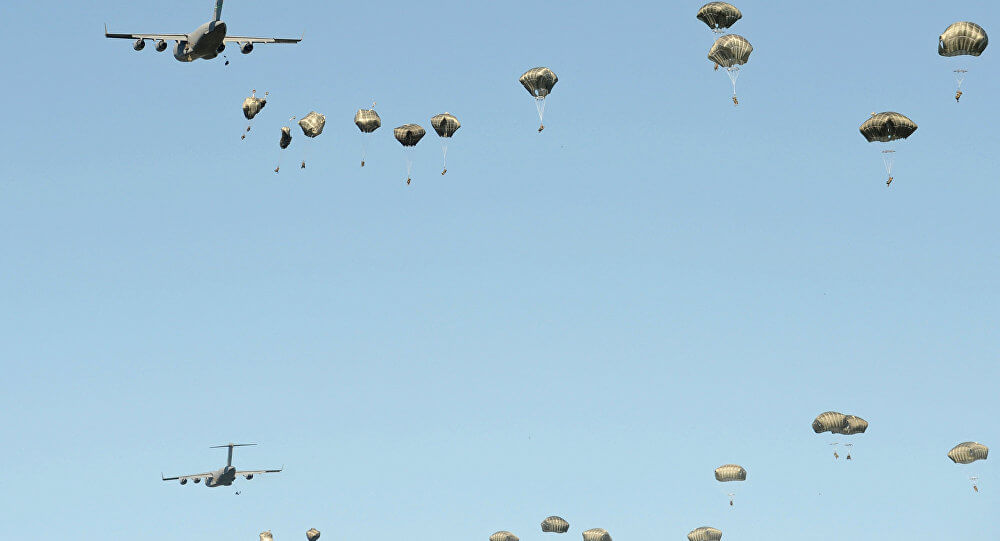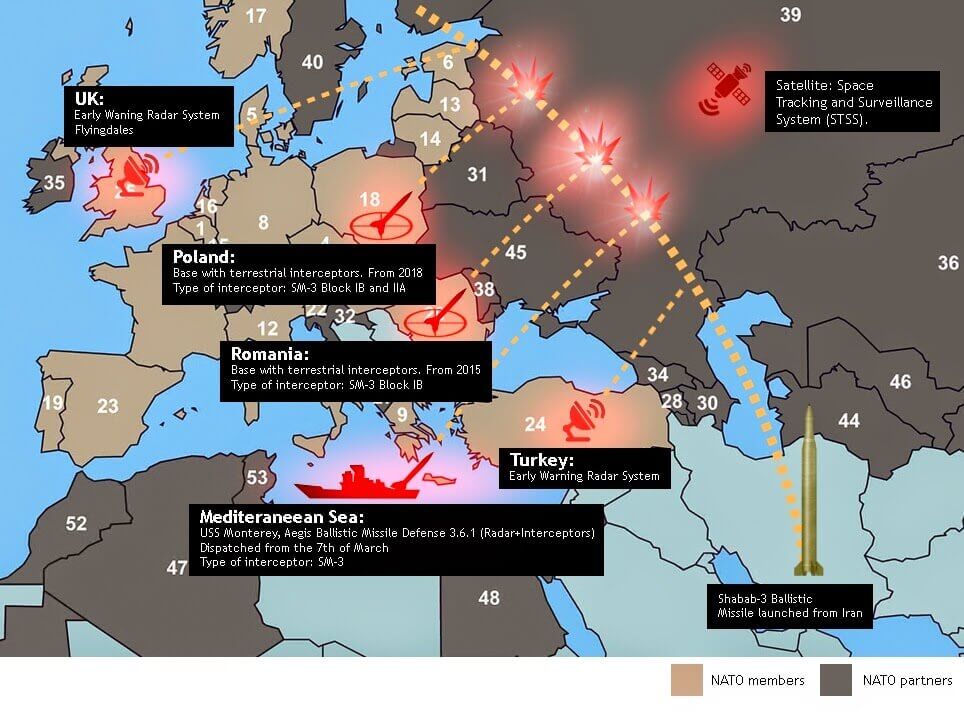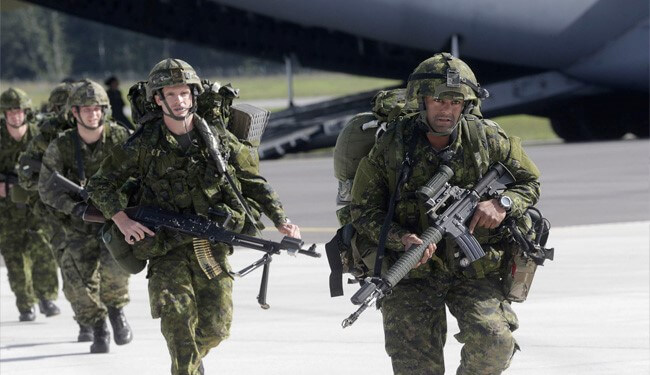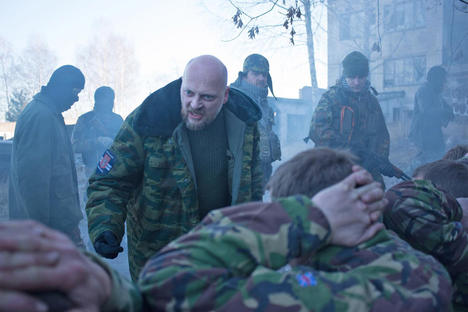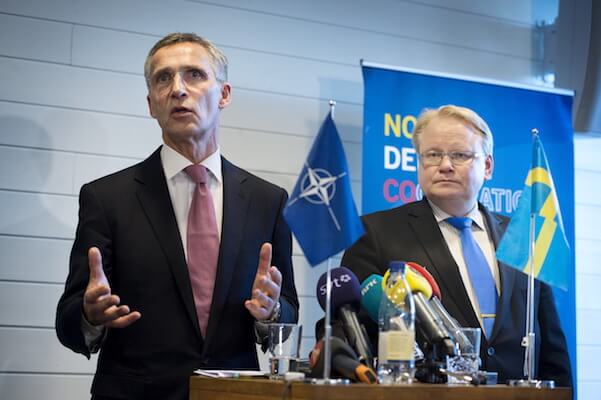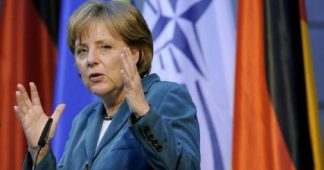NATO launched a 10-day long military exercise in Poland on Monday, June 6 .
The exercise, codenamed Anaconda 16, involved 31 thousand NATO troops from 24 participating nations with the US providing the largest number of military personnel and the [dollar], since the US current assumes roughly 73 percent of NATO’s annual budget.
Relations between NATO and Russia have been tense since Russia’s annexation of Crimea in 2014 and its support for separatists in Eastern Ukraine.
PERIES: So, professor, this is one of NATO’s biggest exercises in Eastern Europe since the Cold War. What is the US-NATO objectives in the Baltic area this time?
SAKWA: Basically it’s what they call a reassurance. The idea is that Russia has become a more assertive power, and the idea is, is that countries in the Baltic and Poland and some of the other central European countries need to be assured that the United States, NATO and the collective defense alliance would come to their defense in case of an attack.
So, you may have heard that there has been much discussion that the Baltic republics, in particular Latvia, is under threat. So the idea is that by demonstrating a common will, a common purpose and above all the commitment of the United States [to] the defense of the NATO alliance that Russia would put off undertaking what they argue is more aggressive actions.
PERIES: Now, the US-led NATO buildup on land, sea and around the Russian borders, accompanied by the activation of May, I guess 2016, this year, missile defense installation as well in the region, all of this is perceived as a threat to the very existence of Russia as a sovereign state.
The Russian foreign minister himself said that Russia is not very pleased with the NATO’s military infrastructure moving into countries surrounding Russia and it is not happy about dragging other states into this military activity. He added that they will invoke Russia’s sovereign right to ensure its security and will respond to NATO’s activity in the Baltic region accordingly. This is all very scary. What did he mean by that?
SAKWA: Well, the big picture in the media terms is that NATO has enlarged from 12 countries in 1991 to 28 now, or 29, Montenegro due to join soon. So, the alliance, from being a defense alliance against the Soviet Union, has become obsessed with enlargement and its now enlarged all the way to Russia’s borders with a potential enlargement to Georgia and to Ukraine. Now, in many ways you could argue that NATO enlargement is not a danger because it’s not an offensive alliance. It’s security, and it’s actually avoided the sort of fragmentation of security in Europe.
That would be fine if Russia was part of that security order. I [am feeling] that’s an issue we’re going to return to. What Russia is doing, of course, in response is a whole stack of things. Since 2008 it has been moving its army to a brigade structure. In the last few months it has shifted to the establishment of three major defensive divisions, that is, army sized units, on what is its western front. And in fact, all along the border, from the Baltics all the way down to the Black Sea, Russia is now establishing new military bases. They’re establishing a whole network of communications and so on.
Also, the second response is the development of nuclear, of modernizing its nuclear forces. For example, some short range missiles [inaud.] and everything else, and strengthening its defenses against what it genuinely fears is the possibility of a sneak first strike attack. I mean, [they’re thinking there’s a] possibility of that, but military planners have to plan for the worst, and at the moment Russia does feel existentially threatened, even the liberals way back.
I’m linking of Yavlinksy, for example, the head of the social liberal Yabloko party, argued that a tank, even if it’s painted pink and it has a flower stuck in its turret, it’s still a great, big lumbering tank coming towards you, and that is shared across the political spectrum in Russia. Who needed NATO enlargement? Who, ultimately, is it against? [inaud.] Of course the West would say it’s a common security, it’s for piracy, all sorts of other elements, but the point is that the inability to create NATO as part of a common security system has led to this confrontation.
PERIES: All right, Richard Sakwa. Let’s take up further analysis on this issue in our segment two. Thanks for joining us for now.
Part 2
SHARMINI PERIES, EXECUTIVE EDITOR, TRNN: Welcome back. I’m speaking with Richard Sakwa. He is a professor of Russian and European politics at the University of Kent in the UK. His latest book is “Frontline Ukraine: Crisis in the Borderlands.”
Thank you again for joining me, professor.
RICHARD SAKWA: My pleasure.
PERIES: So, let’s start with Poland here. Polish officials recently said that an attack on Poland would be an attack on NATO, and the Russian envoy to NATO replied by saying that that was absurd given that Russia has no plans to attack Poland. Explain why Poland is so concerned about a potential Russian attack here.
SAKWA: Well, I must say that I’m the last person to ask that, in the sense that I think it’s absurd indeed, as the Russians responded. And indeed, all the fears in the Baltic republics, Estonia, Latvia, Lithuania, of a potential Russian attack, they fundamentally misunderstand what is going on in Russia. So it’s a function, if you like, of domestic politics, and it’s a function of the last 25 years in which we were unable to overcome Cold War thinking.
So, the great danger is that NATO has enlarged, the European Union has enlarged, but what it failed to do was to socialize these countries in overcoming the legacy of historical grievances. Now, [as a Pole] I understand that there is a heavy burden of history, bad relations between Poland and formerly the Soviet Union and today Russia, but the whole point of the European Union and indeed NATO was to overcome this and to establish a new peace order.
Instead, what has actually happened is that the, if you like, the unsocialized [feel], how can I put it, undigested anger about the past has fed back into NATO and thus changed the very nature of NATO from being a peace project of, you know, maintaining the peace and defensive, into something else. At the same time, NATO is embedded in a military culture, institutions and ideas that also have not been transcended since the end of the Cold War.
So, at the slightest provocation, in a sense NATO now exists to manage the threats created by its own existence. This is the huge paradox. It’s now found a meaning or purpose because it was losing it, of course, in the 25 years until 2014. Now it’s back in business doing what it was established to do, and that is to contain Russia. And countries like Poland have always been worried about need to hedge against a potential, you know, reborn and more aggressive Russia, but by hedging for that eventuality they are in danger of making their fear become an actual fact, and that is the enormously closed logic in which we find ourselves and which will be on display at the Warsaw summit of NATO on the eighth and ninth of July coming up.
PERIES: Difficult times. One thing that I was reminded of when you were talking about the role of NATO: It’s very interesting that when you walk into the Pentagon you see every single member of the NATO alliance with their own offices inside the Pentagon, hardly a peacekeeping force because it is so linked to the objectives of the Pentagon. Your thoughts on what will happen at this meeting and this, also I mentioned that the US has allocated and assumes 73 percent of the budget of NATO. How much of this contention with Russia is playing into this exercise that’s going on that we were talking about earlier in segment one?
SAKWA: At the moment the situation is feeding upon itself and it’s in danger of getting into such a dangerous, self-eating loop if you like that I actually, and not only me, Bulletin of the Atomic Scientists are warning that we are in danger of sleepwalking into a major confrontation. Unfortunately, the language at the moment is endless escalation. You may have seen Victoria Nuland at [Congress] the other day talking about the dangers from Russia.
So yes, the forthcoming summit will see the United States asking its European allies to take on a greater share of the burden, as we note that at the moment it’s the United States which takes the lion’s share of the burden. But what does this mean? It means the re-militarization of European politics. We really had thought, after the end of the Cold War in 1989-91, that we could establish a new peace order, instead of which we’re talking about a new order.
We’re taking about a new division of Europe, this time from Narva in the Baltic all the way down to Mariupol on the Sea of Azov, both sides now reinforcing this line of division. The Russians, as I mentioned, are sniffing up new divisions to defend what they considered the traditional invasion route from the west of [Turkey], great flat, great North European Plain. On the other side, countries like Poland, Lithuania whipping up fear of a Russian aggression which both sides are completely missing the point that no one ultimately is threatening the other, but it’s a military establishment and, if you like, a civilian establishment based on Cold War ideologies which is, as I say, in this exceptionally dangerous loop, and the situation in which a small incident, an accident, a small provocation somewhere other could lead to a very, very swift escalation.
I mentioned the Bulletin of Atomic Scientists. They have now set the doomsday clock at three minutes to midnight. This is as close to midnight, i.e. as close to Armageddon, as it has been over the last 60 years since it was established, equivalent to the Cuban Missile Crisis in 1962 and other dangerous instants of the Cold War. In other words, we’re back to where we began and so I really do call upon NATO and the Russians and everybody.
We must find a way to de-escalate, and sending more forces, more military, more anti-ballistic weapons in Poland and Romania and new divisions on either side, we now begin. We must establish a new dynamic of dialogue. The worst thing at Warsaw is going to be that the European Union now is going to work more closely with NATO. Yes, there are common challenges. We do want them to work together if it was within the framework of peace, but if it’s in the framework of contention, conflict, then I think that we are in danger of slipping into a very dangerous situation, as dangerous as it was in 1914.
PERIES: Now, the NATO Secretary General Jens Stoltenberg has said that one should not worry about what’s going on and the exercises underway. Let’s take a look
JENS STOLTENBERG: Everything we do is defensive and it is proportionate and it’s absolutely in line with our international commitments. The exercise Anaconda is Polish-led exercise where the readiness of the forces are tested and the Polish armed forces are exercising together with troops from different NATO-allied countries. But again, this is something which is thought-over exercise program. It’s announced. It’s transparent. So, there is no reason that this should create any concern.
PERIES: What talks or negotiations are underway given that Russia does have an envoy at NATO. They must be in discussion.
SAKWA: Hardly any discussions. The NATO-Russia Council met a couple of weeks ago and all it did was to show just how wide the sides are apart from each other. There’s, after the events of 2014 in the Ukraine NATO cut off almost all contacts with Russia. Yes, Sergei Lavrov meets quite frequently with Secretary of State John Kerry, but that’s the main channel of communication at the moment. So, in terms of institutional engagement there’s almost none.
And this is a betrayal, if you like, of the last 25 years with the NATO-RUSSIA Council, the founding act in 1997 which said that there would be no permanent forces in the countries to which NATO had enlarged.
The big picture, if I may just say this, is that Russia, since the end of the Cold War, really has tried and wanted to join this, what I call this sort of a new West or an enlarged West, but it wanted to join it as an equal partner. This would have meant the United States sharing hegemony or leadership with Russia and other countries, and it simply was not accepted or able to do so.
Yes, they may have, it would have been very tough, very hard to establish this expanded security community, but ultimately that was really what we had to do and we still have to do it. So, in other words, we really have to start thinking in new terms. It’s no good simply saying NATO’s all about peace, Jens Stoltenberg saying it doesn’t threaten Russia. Well, what on earth is it all about with 30-odd thousand troops at Russia’s borders? And also the other exercises, [boat ops] in the sea, and so this is a series of three major enterprises in the Baltic countries, in the Baltic Sea and this one in Poland.
So it’s obvious who they’re worried about, and so Russia is obviously in this cycle, as I say, of escalation. Everybody says, it’s not against you, but each one is adding yet more fires and more coals to the fires which may end up raging uncontrollably.
PERIES: Richard Sakwa, I thank you so much for joining us today. This is a very serious situation and we are hoping that you will come back on the Real News and continue to do some of this analysis.
SAKWA: I’d love to. Thank you.
PERIES: And thank you for joining us on the Real News Network.

